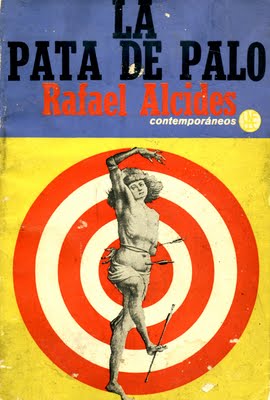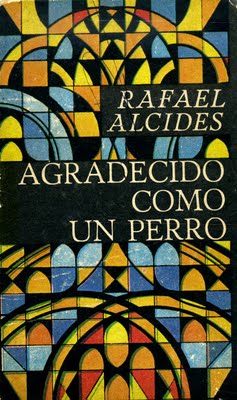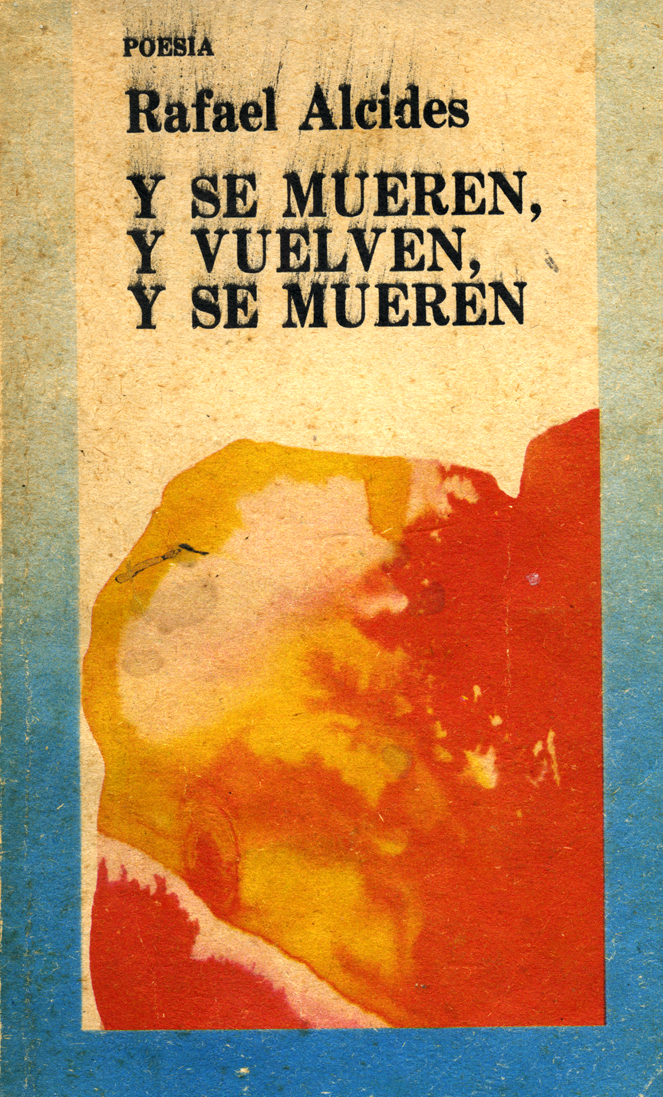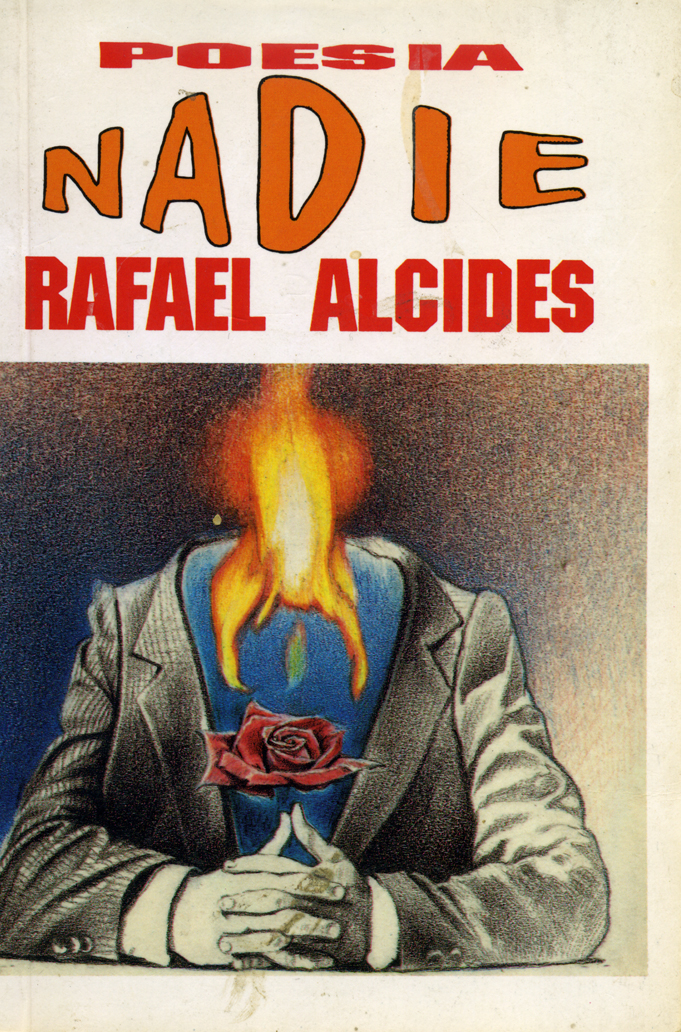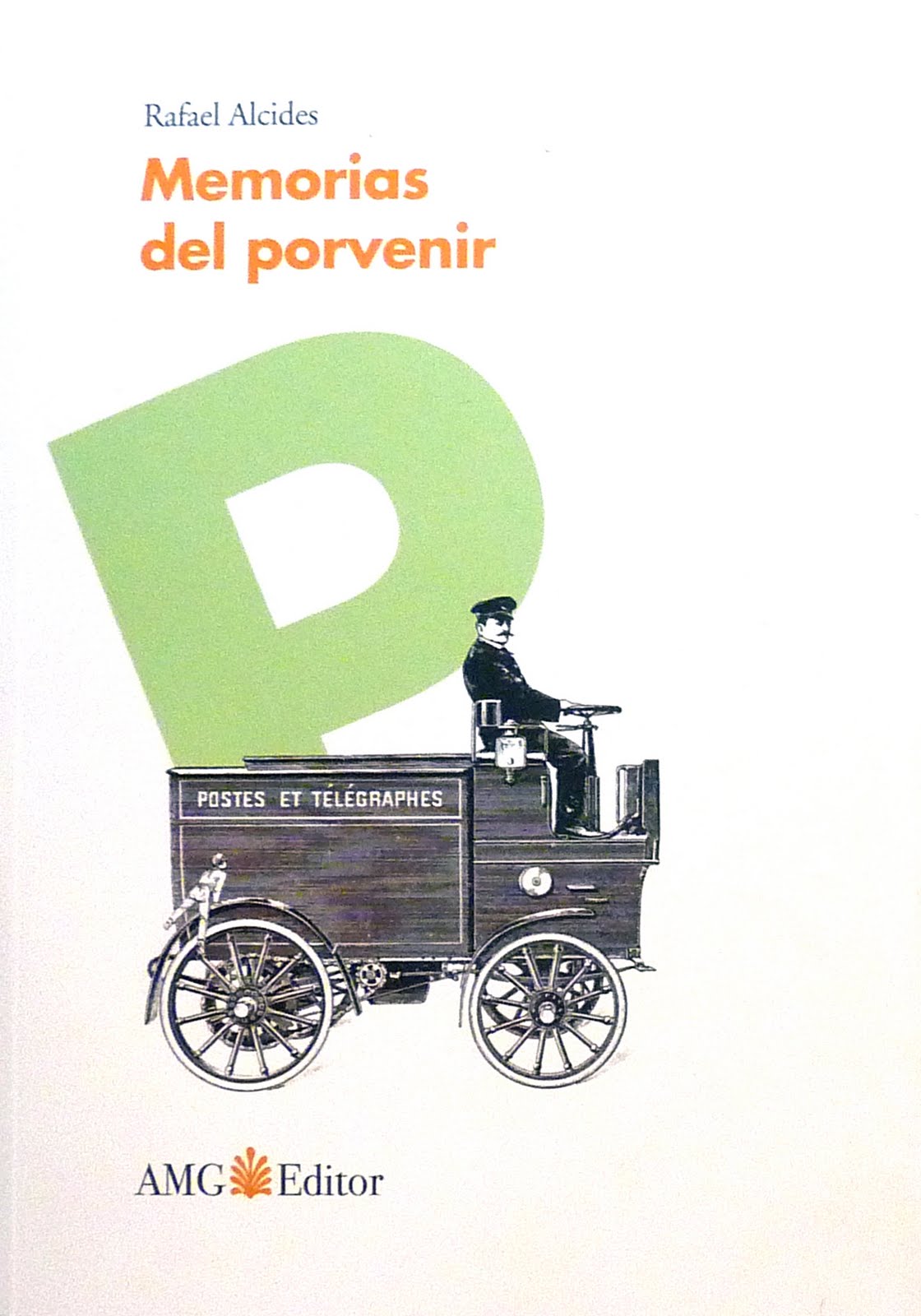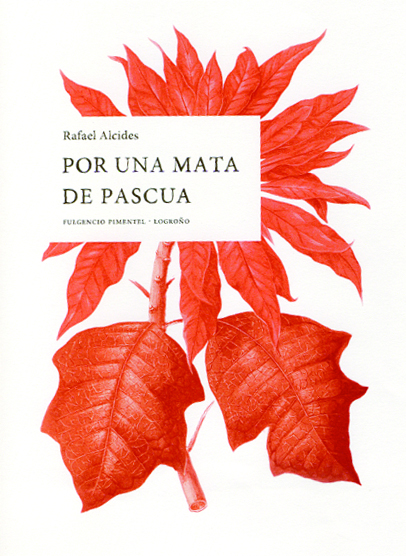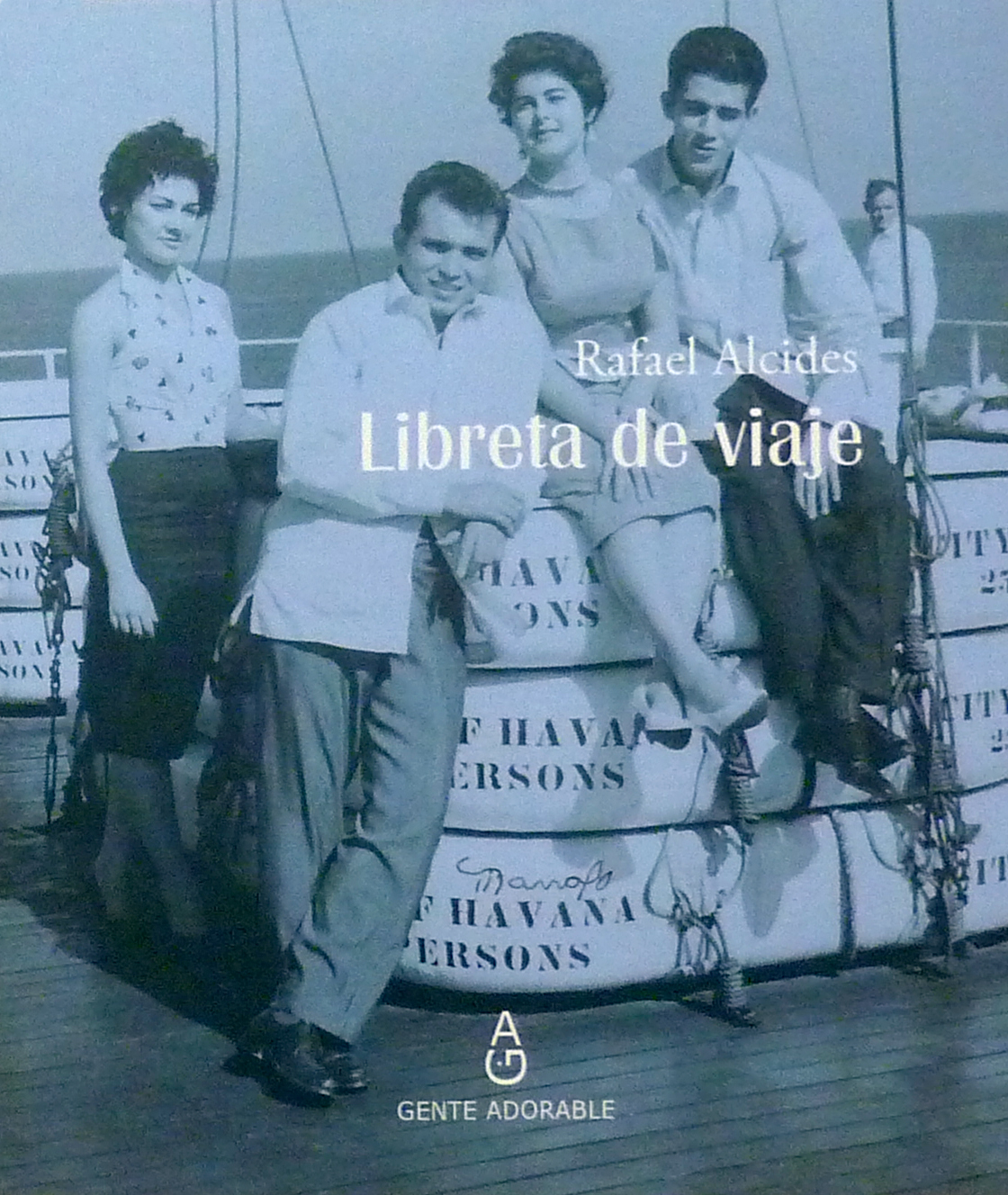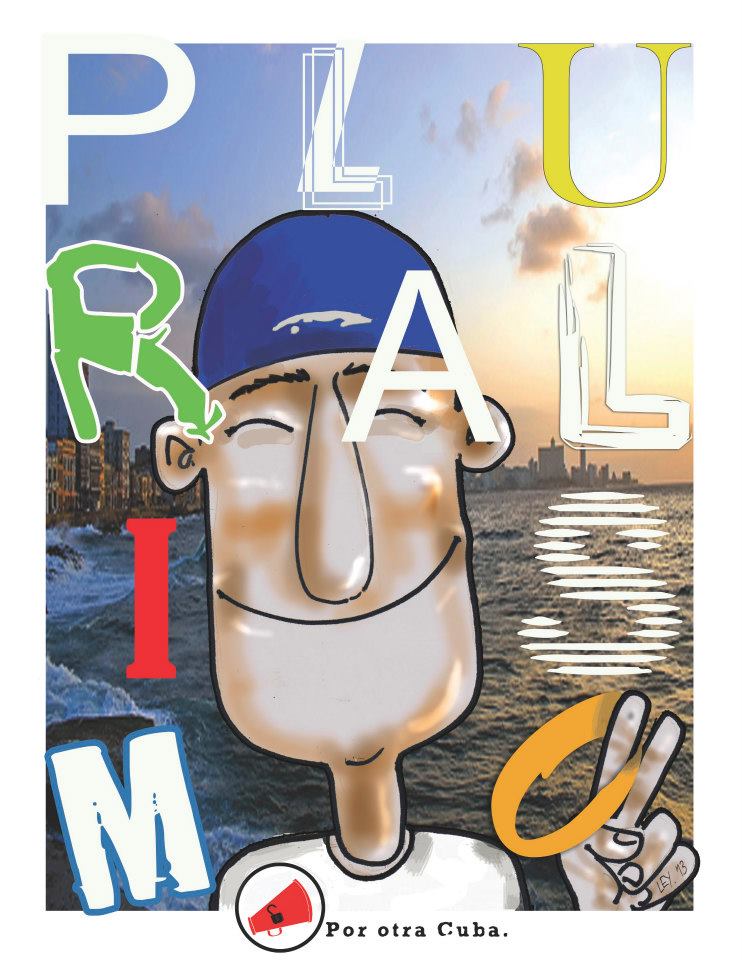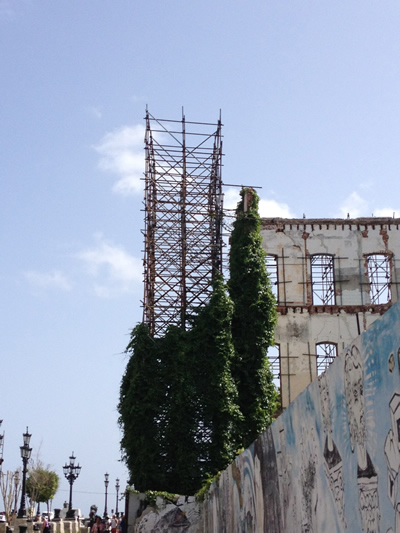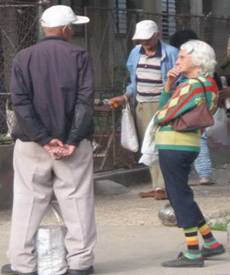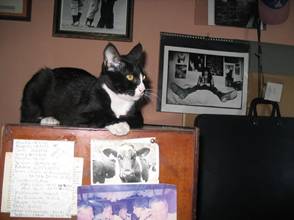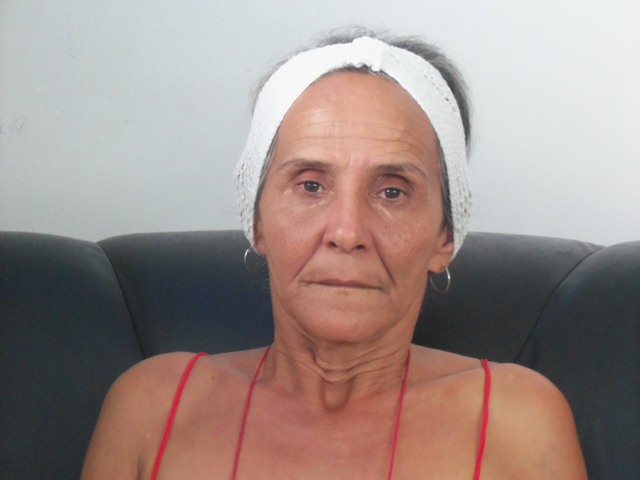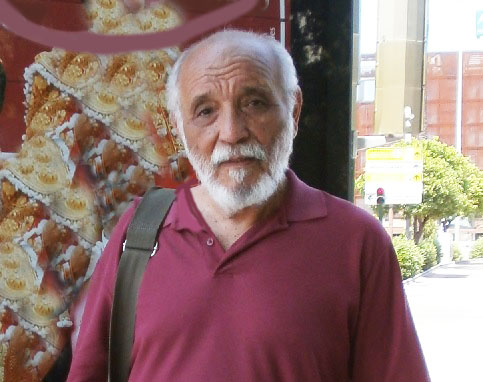
My husband is not just any writer. He belongs to the generation known as “The Generation of the ’50s,” a rather arbitrary poetic grouping that started with Carilda Oliver (1922) and ran through David Chericián (1940). His generation’s peers — if they haven’t died or emigrated — have received the National Literature Prize and enjoyed social and official recognition. This is one of the reasons he is an extraordinary writer. Not only that he wasn’t seduced by the siren song of the National Prize ten years ago. Not only that he willingly “inxiled” himself from Cuba’s cultural life for twenty years and is not published in Cuba.
For him, the prize has been that his book Agradecido como un perro (Grateful As a Dog) was traded for cigarettes in the Combinado del Este prison in the late eighties, and asked around for; kids coming from the provinces discovered him by chance in a second-hand bookshop. His books today would be collectors’ items, of a writer unknown to the young and unpublished after 1990, if it weren’t for the Seville publisher Abelardo Linares who knocked on our door one day.
He is not a run-of-the-mill writer. Foreign publishers are highly sought after, their visits to Cuba put them in a position to receive a ton of unpublished and published texts from hopeful authors who either fete the foreign visitor or put a Santeria spell on them.
Alcides is incapable of boarding a bus, a shared taxi (almendrón), a called taxi (panataxi); he is incapable of walking even 200 yards to meet a celebrity. Instead, he is an extraordinary host, so warm and attentive, who immediately makes even new acquaintances feel comfortable.
In this era of ideological polarization, he maintains an intact and intense affection for those he loves, whether a high government official or a senior opposition leader in exile. He forgives (but does not forget, he has excellent memory) some highbrow (?!) silliness from a fledgling poet to a functionary who from his new position has been allowed to treat him coldly. He will regrets the error of omission in the dedication to Roberto Fernández Retamar in a poem in a book just published in Colombia.
Another of the things that makes him extraordinary has to do with his appearance. When we started our relationship 24 years (!!) ago, my niece, with all the candor of ten years, wondered if he was Eliseo Diego. He was then a venerable white beard unsuspectedly balding. His contemporaries seemed like younger brothers. It turned out the joke was on them as he didn’t get any older while others lost their freshness, hair, pounds, physical and/or mental agility and for a long time the tables have been turned. That, despite a copious medical record very well concealed.
With the bias of affection, there are those who say he’s the best poet in the world. There’s no need to exaggerate, although some verses are saved for posterity.
These fires feed this man who writes and writes on a battered computer with no more to give. Leaving poetry behind he is dedicated to finishing enormous drafts, novels that became priorities in the rush of life.
No one would expect that behind this thunderous voice asking who’s last in line at the farmer’s market, this competent cook who saves me from the daily doldrums, is this Amazing Poet in “atrocious invisibility” who tomorrow, June 9th, will be 80 years old.
8 June 2013
